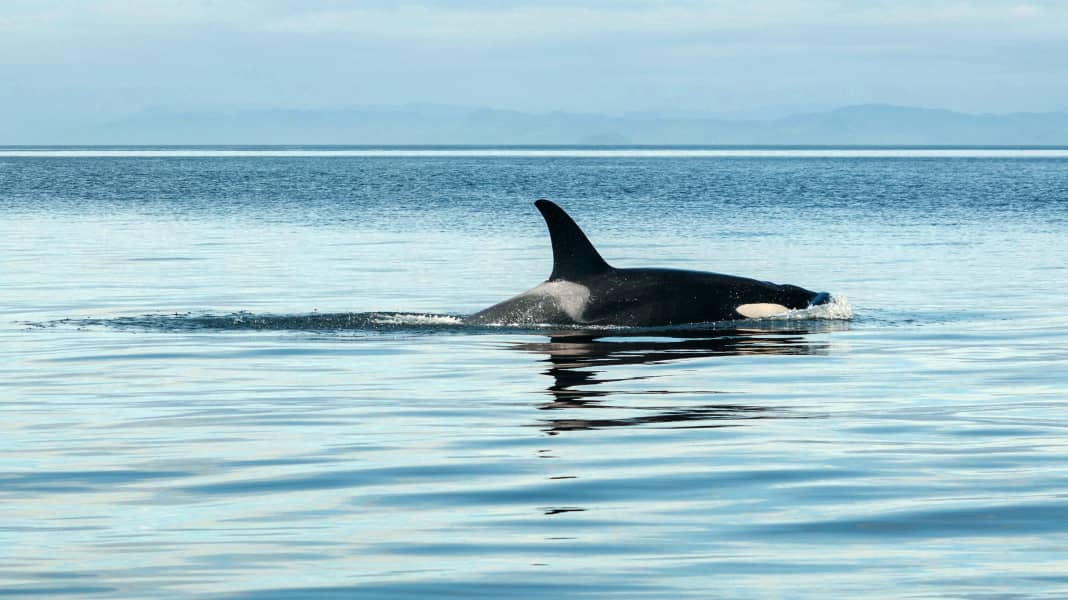
Orcas recently chased a fishing boat off the coast of North Jutland. The killer whales are currently being sighted more frequently in the region, but ships had not been attacked by the animals there before. This is not the first time that orcas have come to our latitudes. In the past, they have appeared in the Kattegat and the Skagerrak, for example. Some of the killer whales have stranded themselves, for example on Sylt or on the Dutch coast.
The situation is different off the Spanish and Portuguese Atlantic coast, particularly near the Strait of Gibraltar. Boats have been repeatedly harassed, rammed and, in particular, their rudder blades damaged there since 2020 - mostly affecting sailing yachts up to 15 metres in length. The Spanish government has therefore repeatedly had to close particularly affected areas to smaller sailing vessels. It is unclear why the orcas are targeting yachts there. So far, there are only hypotheses, which is why scientists avoid talking about "attacks".
Experts advise keeping calm in the event of an encounter and switching off the engine and electronics. There are around 50,000 orcas in the wild worldwide. They are mainly found in the North Pacific, North Atlantic and polar seas. Their only enemy is man. Marine biologist and behavioural scientist Karsten Brensing - himself a circumnavigator - explains in an interview why we can now expect to see more orcas in the North and Baltic Seas:
YACHT: Were you surprised that orcas are now also coming to the North Sea?
Karsten Brensing: No! These animals have always been very flexible. They exist worldwide.
So can we expect to see them more often in the sailing areas of the North and Baltic Seas?
That cannot be ruled out! If they find food somewhere, they swim there. As a result of climate change, the sea here is getting warmer, certain animal species are migrating further north and the orcas' food supply is changing. They are fit enough to recognise this and communicate it to other orcas in their community.
In the past, ships have repeatedly been attacked by orcas. How dangerous are they for sailors?
I think everyone should just relax and enjoy the moment when orcas pass by. They are impressive animals! There has not been a single case of an orca killing a human in the wild. But they can kill people and have done so in captivity.
But orcas have repeatedly rammed boats off Spain and Portugal and bitten into rudder blades!
This is a very special case that I have been following closely. In times of the coronavirus pandemic, the animals have learnt what a quiet ocean sounds like. Now the noise is coming back. It could be that they are simply frustrated. They can't do anything against the large cargo ships, but they can against slow sailors, especially at the helm. But that is still speculation.
But do you think it's possible that the animals want to take revenge on us?
They do not differ greatly from humans in the way they think and feel, and they have a distinct and complex social life. Orcas live in a culture, and attacking sailing boats has therefore become established as a kind of cultural tradition in the population. However, it is rather unlikely that this will spread here in the north. What is happening off the Iberian coast is an exception.
How can sailors protect themselves from attacks?
I advise against using devices that are supposed to scare away orcas with unpleasant noises. This may make them even more aggressive. I also don't think much of the tip to drive in reverse. The animals could feel threatened by this. My advice: Switch off the depth sounder if you don't absolutely need it. An echo sounder acts like a beacon!
